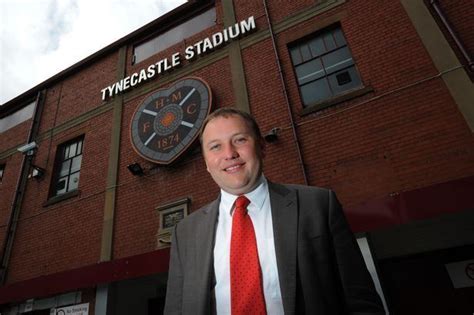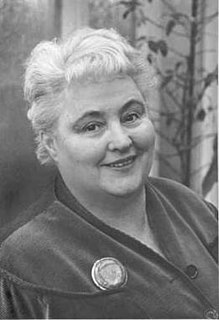A Quote by B. C. Forbes
A magazine editor recently asked me to sit down on my 40th birthday and write an article on the most important things I had learned in my first 40 years. I told him that the chief thing I had learned was that the copybook maxims are true, but that too many people forget this once they go out into the heat and hustle and bustle of the battle of life and only realize their truth once one foot is beginning to slip into the grave. The man who has won millions at the cost of his conscience is a failure.
Quote Topics
Article
Asked
Battle
Battle Of Life
Beginning
Birthday
Bustle
Chief
Conscience
Cost
Down
Editor
Failure
First
Foot
Forget
Go
Grave
Had
He Man
Heat
Him
His
Hustle
Hustle And Bustle
Important
Important Thing
Important Things
Learned
Life
Magazine
Man
Many
Maxims
Me
Millions
Most
Most Important Thing
Once
Only
Out
People
Realize
Recently
Sit
Slip
The Most Important
Thing
Things
Too
Too Many People
True
Truth
Write
Years
Related Quotes
The first casualty in any war is the truth. In World War II, I was part of a group of people who used to meet once a week with the sole purpose of analyzing the news and trying to work out what we weren't being told. We thought that we were clever, but we had absolutely no idea what was really going on. It was only years later that we learned the true story.
As a child, he had hardened his heart and learned to take their punches. He had learned to spit back and take down anyone who cast a jaundiced eye or who made a comment about either him, his mother, or his sister. He’d told himself that he didn’t need anyone’s love or caring. And so he had learned to live like a feral animal, always ready to strike out when someone tried to touch him.
I once visited an RSPCA hospital in Norfolk. I spoke to the vets working there, and asked them how many times they had had to treat a fox that had been brought in with a shooting injury. The answer from a vet who had worked there for many years was, Not once. When I asked him why, he said,You can take it from me that when the fox is shot in the countryside by somebody trained, it is dead.
If I only had 24 hours to live, I'd most likely spend it letting people know I loved them, and trying to make things right with whoever things were wrong with. One thing about life, man, once you're gone, the only true impact you have is on the lives you affected positively, no matter how many hit songs or movies you had.
I once had a letter from a man who asked to do something very weird. He told me he wanted to sit on my shoulders and for me to then walk around his town to raise money for charity. He described himself as being 6ft and I was thinking, 'I'm only 5ft 4in, and you want to sit on my shoulders?' How bizarre.
There was once a man, Harry, called the steppenwolf. He went on two legs, wore clothes and was a human being, but nevertheless he was in reality a wolf of the steppes. He had learned a good deal of all that people of a good intelligence can, and was a fairly clever fellow. What he had not learned, however, was this: to find contentment in himself and his own life.
He pulled the Carstairs family ring from his finger and held it out to Will. "Take it." Will let his eyes drift down toward it, and then up to Jem's face. A dozen awful things he could say, or do, went through his mind. One did not slough off a persona so quickly, he had found. He had pretended to be cruel for so many years that the pretense was still what he reached for first, as a man might absently turn his carriage toward the home he had lived in for all his life, despite the fact that he had recently moved. "You wish to marry me now?" he said, at last.
When Luke had descended into the River Styx, he would've had to focus on something important that would hold him to his mortal life. Otherwise he would've dissolved. I had seen Annabeth, and I had a feeling he had too. He had pictured that scene Hestia showed me—of himself in the good old days with Thalia and Annabeth, when he promised they would be a family. Hurting Annabeth in battle had shocked him into remembering that promise. It had allowed his mortal conscience to take over again, and defeat Kronos. His weak spot—his Achilles heel—had saved us all
Forrest Mims is the author of the famous book 'Getting Started in Electronics,' published by RadioShack for many years. I bought the book in the 1980s and had a blast making the projects in it. When I was editor-in-chief of 'MAKE,' I asked Forrest to write a column for the magazine, called 'The Backyard Scientist.'
The thing that most haunted me that day, however...was the fact that these things had - apparently - actually occurred...For all his attention to my historical education, my father had neglected to tell me this: history's terrible moments were real. I understand now, decades later, that he could never have told me. Only history itself can convince you of such a truth. And once you've seen that truth - really seen it - you can't look away.
When I was 12 or 13, my dad taught me a couple of different chords, and once I learned chords, I never learned to read music, but I learned tablature, like a lot of kids do, and I learned songs that had the chords I knew. It took me a long time to understand the upstroke of picking and strumming, but once I did, it all fell into place.
Losing so many patients certainly was difficult, but it didn't make me feel like a failure as a physician, because I had learned that there was so much more to being a physician than curing illness. That's not the most important thing we do. The most important thing we do is enter into the suffering of others.

































